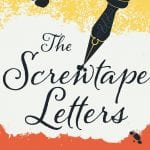I first read The Tenant of Wildfell Hall in London, and consumed the majority of it lying stretched out in a bathtub in the early evenings. Written by “Acton Bell” in 1848, it’s a somewhat chastening novel of a closed off young woman, new in town, fending off an onslaught of social calls from all its eager inhabitants. Her personal history is practiced, and her manner and situation in life leaves many questions unanswered. It’s a story about duty, ethics, scumbags, heroes, love, and foolishness.
Pick a Brontë, any Brontë, if you want to have your heart broken and pieced back together again. The two novels credited to “Acton Bell” were, of course, the work of the youngest Brontë, Anne. While she is, I guess, considered the least accomplished of the three (her prose is a little simpler, her narratives don’t have as much depth), there is still so much here in Tenant and also in her Agnes Grey that is so good for us. It’s good especially if we are people with faith who believe our lives are witnessed and that even the moments we’ve forgotten are stored specially away in the eternal memory of Someone Else.
The heroes and heroines in these sort of novels, the ones we call period dramas, are always fighting against an easy, knee-jerk reaction to their problem, and with almost brute force pushing themselves into the best, least gratifying moral course of action. This is the path that is mostly unwitnessed, but they travel down it anyway because it’s good and right. This is a great education for us. Our flabby, untoned virtue is no match. Read how Elinor Dashwood endures being the confidante of her rival. Watch how Helen returns to nurse on his deathbed the man she had successfully escaped. See Mr Darcy pay for and participate in Wickham’s unholy wedding. Molly Gibson from Wives and Daughters risks her reputation to help a friend. We are not often like these people, but these are exactly the type of people we should be. Our eyes should be set higher than immediate success or comfort, and we should realise that we don’t lose anything when we give up our own pleasures in order to do what’s right by someone else.

After you’ve suffered, found redemption and enjoyed just rewards in the pages of The Tenant of Wildfell Hall, you may, a few years later like myself, be pleased to find an old 1996 BBC adaptation starring perfectly cast Tara Fitzgerald as Helen, a boyish Toby Stephens and 30 year old Rupert Graves who hasn’t grown into his face yet.
This mini-series is perfect in its 1990s-ish way. It’s well paced, has a strong script, is restrained but still full of emotion. All BBC mini-series from this time have this unique set of qualities. A lot hinges on the performances because there just isn’t much else to rely on. The dramatic and at times thrillingly romantic (okay, sexual) atmosphere of many of the more recent adaptations (which I do still like) is just not there. The camera in these 1990s dramas feels like it’s plodding along between scenes, with regular slow pans across the moor. 2005’s Pride and Prejudice is more electric than 1995’s, but 1995’s somehow tells us more about two people whose hearts are burning to be together and what will help them to actually be happily married. Counterintuitively, that turns out to be largely the character of the other person. The wet-shirt-after-diving-into-a-pond-to-alleviate-angst part in the 1995 version definitely panders to its female audience, but wet Colin Firth is still not Aidan Turner as a really tanned and muscular Poldark (2015), which just feels completely indulgent and kind of insulting to your intelligence.
For some reason the hard truths in these stories ring out so much louder when they’re told in a simpler way and I feel like we can absorb more of the lessons they have to teach. A older British actor with imperfect teeth always for some reason seems to have a better grasp of their role and what the script is really doing than a younger, more toned lead with professionally shaped eyebrows.
These summer holidays, as you consider what to watch and read, I recommend a diet of hard truths and patient love. The novel at the bottom of your parents’ bookshelf or the faded DVD set at the library might be the perfect antidote to what’s ailing you if you’re starting to feel overstimulated by light sabres and CGI kids’ movies. These old stories were often written by authors who had faith, and had things to say, and it’s with both pain and pleasure that we should listen.















